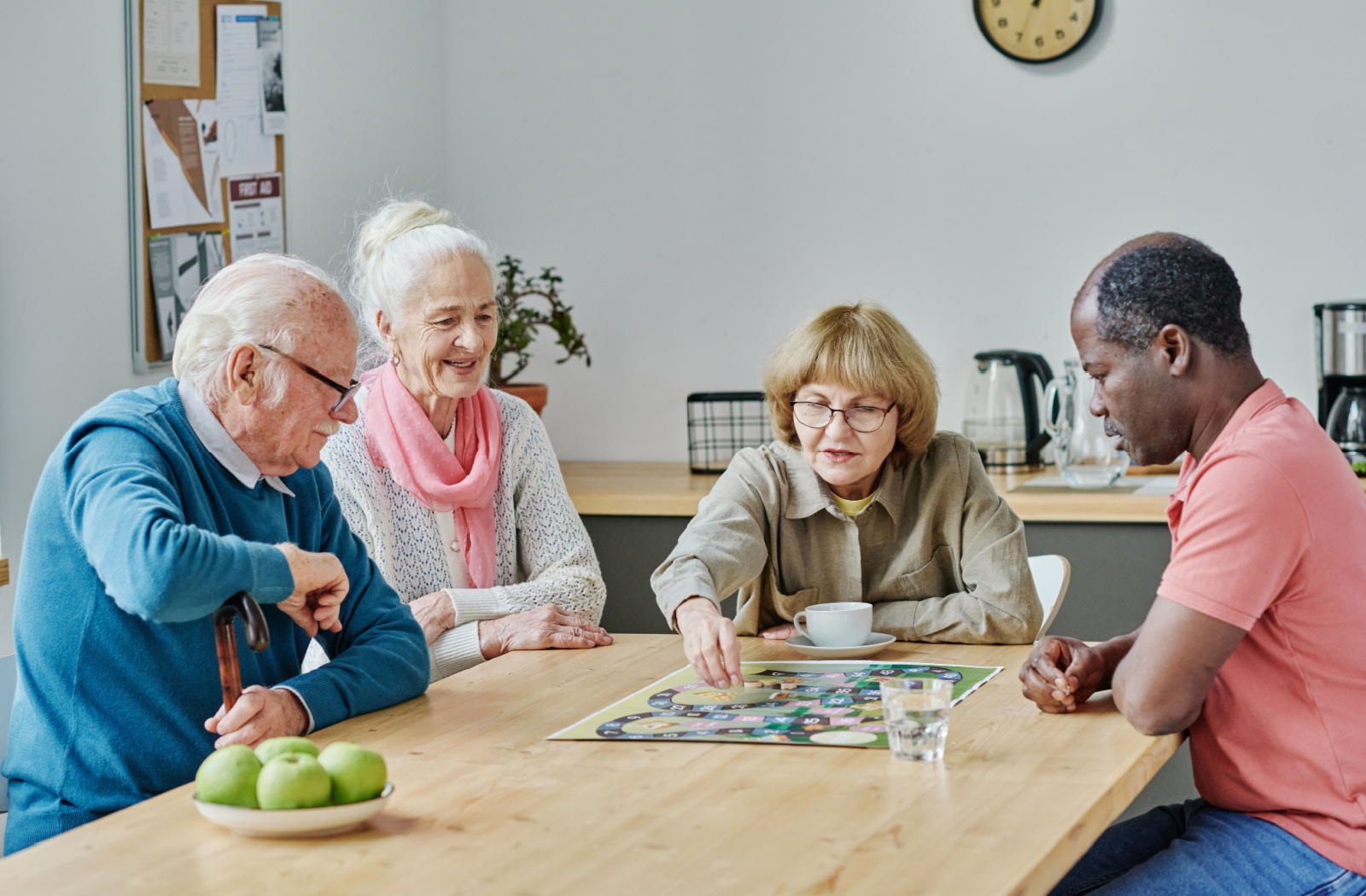Dementia is a complex condition, and it can affect almost every part of a person’s life. Older adults living with cognitive changes sometimes face unique challenges due to the nature of conditions like dementia. However, simple activities like playing games can offer moments of engagement and joy.
Games designed for seniors with dementia improve cognitive abilities, bring joy to their daily lives, and create moments for meaningful social interaction. From puzzles and board games to physical activities, there are plenty of great options.
Why Games Matter for Seniors With Dementia
Playful activities are more than just a way to pass the time—especially when conditions like dementia are involved. These games bring mental engagement and emotional comfort to your loved one’s life. Even better, they give a sense of accomplishment, which has significant cognitive benefits.
For many, cognitive decline can lead to feelings of isolation or frustration. Social games help to counteract this by focusing on shared moments of laughter or achievement. They give your loved one a sense of belonging and connection, which is key to quality of life.
Mental & Emotional Benefits of Playing Games
Games can help keep the brain active. They challenge cognitive skills like memory, focus, and problem-solving. Activities like puzzles, memory games, or virtual experiences tailored to seniors can support mental agility.
While they may not entirely stop memory impairment, they offer a way to stimulate the mind. This can potentially slow cognitive decline by strengthening the brain itself. Even simple games, like matching cards or word-search puzzles, can tap into skills without creating unnecessary stress.
The key is to adapt these activities to the individual’s comfort level. By adjusting them as needed, you can give your loved one engaging ways to stay stimulated and find entertainment every day.
Mental Health Benefits of Games
Games can be a great tool to improve mental health. They help reduce stress by providing a fun and enjoyable activity. Playing games can also support emotional well-being through social interactions.
They often encourage creativity and problem-solving skills. Overall, they offer a sense of achievement and satisfaction. This can be an excellent boost to your loved one’s health.
Supporting Emotional Well-Being
Playing games creates space for laughter, moments of relief, and feelings of accomplishment. It’s about participating in an activity that feels achievable, offering a welcome break from the routine.
Whether painting, tossing a bean bag, or solving a puzzle, these activities help reinforce confidence. The smaller wins add up emotionally, reminding seniors of their capabilities while offering enjoyment along the way.
Game Ideas for Seniors With Dementia
So what games are ideal? It helps to choose options that can easily be adapted to your loved one’s abilities. Some common options include:
- Simple board games
- Puzzle and memory games
- Creative activities
Simple Board Games
Classic board games with easy-to-follow rules work beautifully. Games such as Bingo, Connect Four, or Snakes and Ladders provide a balance of mental engagement and opportunities for casual conversation. Their familiarity can be soothing, and they’re perfect for including the whole family.
Choose games that can be modified, if needed, to accommodate various abilities. For example, use larger cards or simplified rounds to help make the experience accessible and enjoyable.
Puzzles & Memory Games
Solving puzzles can be both relaxing and stimulating. Jigsaw puzzles with large, intuitive pieces or matching games with visual cues offer just enough cognitive engagement without being overwhelming.
Memory games, like matching pairs or simple card sets, feel interactive while encouraging short-term recall. Watching an image or phrase come back into focus becomes a rewarding victory all on its own.

Creative Activities
Creative activities like painting, crafting, or coloring allow seniors to express themselves in unique ways. For those who might find verbal communication tricky, art offers a non-verbal outlet to connect with emotions or memories.
Surprisingly, even the simple activity of filling in patterns or loose sketches can provide a deep sense of calm. These slower-paced games ensure everyone can participate without feeling rushed.
Physical Activities
Light physical games keep the body moving. But they also support coordination and mobility, which are core to staying healthy.
Activities such as balloon volleyball, bean bag toss, or chair-based exercises deliver both enjoyment and physical benefits. These games are also easy to scale—making them a great fit for seniors of varying physical abilities.
Tips for Adapting Games to Individual Needs
Dementia affects everyone a little differently. Because of this, game selection should reflect their preferences and abilities. A favorite childhood game or a modified version of something familiar might spark joy and engagement.
Too much complexity can frustrate rather than entertain. Look for games or activities with only a few clear steps. If needed, modify rules or tools to fit comfortably with the participant’s abilities.
Patience is critical. Encouragement and supportive remarks can make a major difference in their willingness to participate. Remember to celebrate the small moments of success—these are key to strengthening your bond together.
Enriching Lives Through the Power of Play
Well-chosen, dementia-friendly games are a great way to help a loved one. They can foster mental engagement, emotional comfort, and nourishing social connections among seniors. Whether through puzzles, playful board games, or quiet creative acts, these activities bring entertainment and joy to your loved one every day.
That’s why we offer so many different activities here at The Bridges at Warwick. We provide a mix of different engaging experiences, all to make every day unique. Schedule a tour with our community today to learn how your loved one can thrive!









